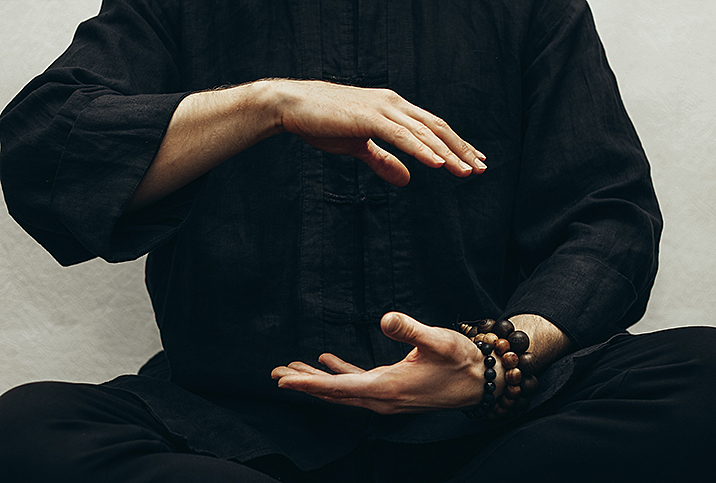The Right Way to Take a Mental Health Day

"The annual cost to the global economy of neglecting psychological well-being is estimated to reach $16 trillion worldwide by 2030, with approximately 12 billion working days lost to mental illness each year," said Sandra L. Shullman, Ph.D., president of the American Psychological Association (APA).
A "working day lost" may be prevented by taking a proactive approach. You may have already heard the buzzy phrase "taking a mental health day." Some people view these breaks as a positive experience that provides a necessary mental reset from their daily demands, while others—particularly those who employ us—might view them as an opportunity to slack off or get out of a deadline.
Regardless of the negative stigma, mental health days are gaining traction in a number of industries, and with so many health benefits, it's no surprise that, little by little, companies are accepting the mental health day as an important tool to boost workplace morale.
What is a mental health day?
We've all taken sick days when we have a cold or stomach virus, or maybe when we just feel run down and want to take a day to get well. However, our brain can feel similarly run down, which is where a mental health day becomes important.
"Using strategies like HALTS [an acronym for hungry, angry, lonely, tired, sad, sick or stressed] to learn to identify the triggers of our stress can help us to identify when we are struggling, and we can create a plan to cope during these times," said Amelia Roeschlein, D.S.W., a consultant on practice improvement for the National Council of Mental Wellbeing. "When we're feeling stressed, we cannot think as clearly, and this is when a support system and coping strategies can help us."
While we all manage stress differently, we can never fully control when said stress becomes overwhelming.
"We know that work productivity increases when we take care of our mental health and take time off to manage stress," said Susan Milstein, M.C.H.E.S., lead consultant for Milstein Health Consulting. "This is why we have sick and personal days. Yet, we continue to glorify the idea of someone pushing through, regardless of how much they are struggling with their mental health during stressful life events."
Oftentimes, employees hesitate to request a mental health day for fear their employer will not allow it, but "asking for a mental health day doesn't have to be any different than asking for a regular sick day," according to the National Council for Mental Wellbeing. The council went on to explain that employees often don't realize they are protected under the same laws that allow for sick days.
Regardless of your employer's perspective of mental health days, you can use your sick time to take a day off. The National Council for Mental Wellbeing recommends you consider your employer when requesting a day off, but if you know your employer will balk at a mental health day, remember you are under no obligation to divulge your reason for taking time off. You can always claim you have to deal with personal matters—which is true.
How to properly recharge
How you spend your mental health day is as important as securing it in the first place.
In an effort to meet our expectations at work, we often slack on our home responsibilities, and once we get time to ourselves, it can be tempting to catch up on household chores, balance our finances or fill our day with errands.
However, this approach is a mistake and prevents us from recuperating. You may spend so much energy working on tasks around your home that you return to work the following day more exhausted and stressed than before.
When taking a mental health day, it's important to plan ahead. If you know detaching yourself from work or family obligations will prove difficult, prepare in advance, so you won't waste time on unimportant tasks or even "check in" with work.
The key is to avoid the responsibilities of your regular day and focus on having fun.
Mental Health America recommends leaving your smartphone at home, getting a good night's sleep and slowing down your morning routine to enjoy the quiet of the day. The most important tip is to know yourself and what you enjoy doing so you can relax.
For example, whenever I take a mental health day, I get the kids off to school and spend the morning enjoying the solitude. I purposely avoid my email by planning to watch a show I've had on my mind or by taking the dog for a long, leisurely walk.
I know I have difficulty sitting still, so I plan activities that allow me to recharge my mind but won't cause me stress. My main goal is to get out of the house and be out of touch with work and other responsibilities for a bit.
Taking a mental health day with kids can be tricky, so I often include them. l still send them to school, so I can make part of the day about me, but in the afternoon, they can take the day off from their after-school activities. For instance, we might go out to eat and have a family movie night.
The key is to avoid the responsibilities of your regular day and focus on having fun.
The benefits of time away
Aside from recharging your brain, a mental health day gives you insight into why you spend your days working so hard. It gives you an opportunity to explore your surroundings and take in the world you're sometimes disconnected from, and it allows you to exist without getting caught up in the daily chaos of work.
Mental health days provide an opportunity to hit the pause button. We can reevaluate our life and our goals to ensure we're on track with our family life, our careers and our mental health. The biggest benefit of a mental health day is to take the time to focus on our mental well-being so we feel refreshed and more likely to continue these self-care practices. And with that accomplished, we're likely to boost our productivity and be more present for our family and friends.


















